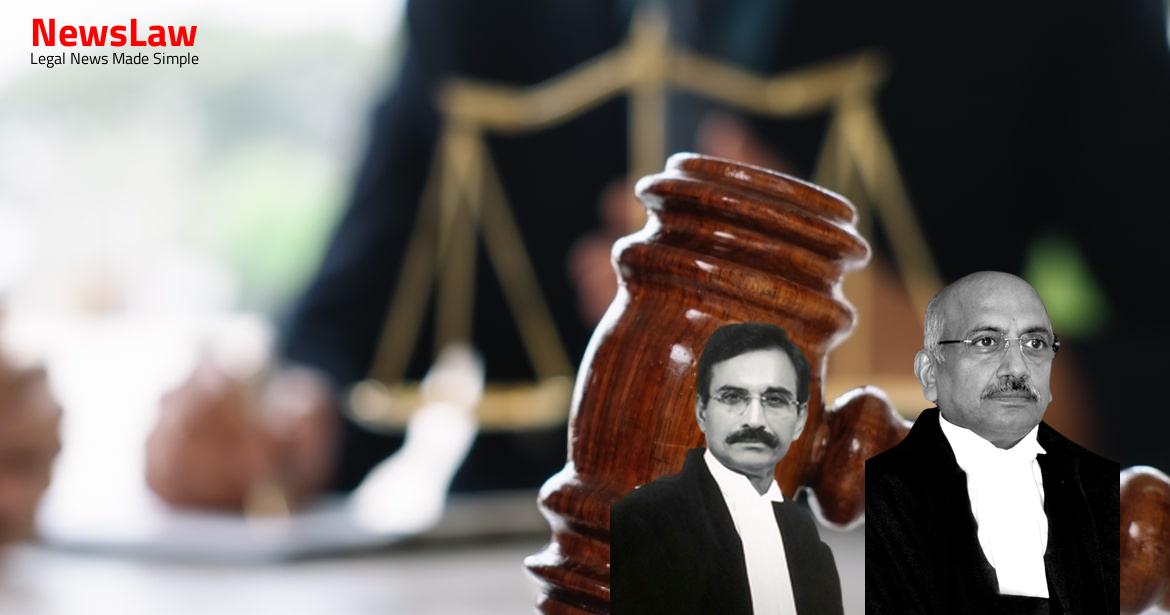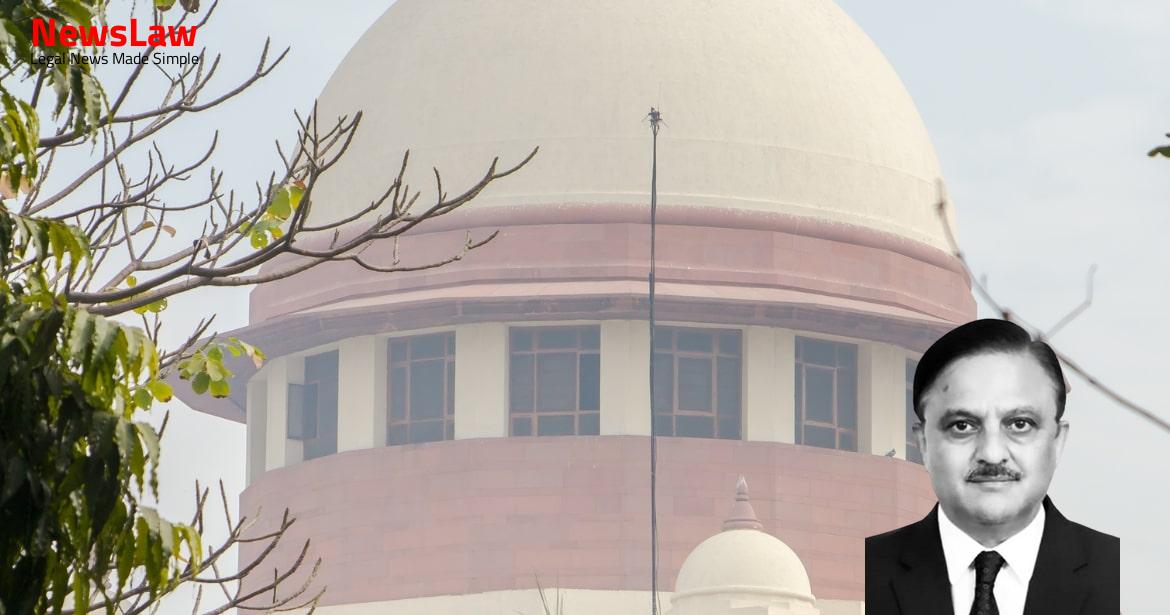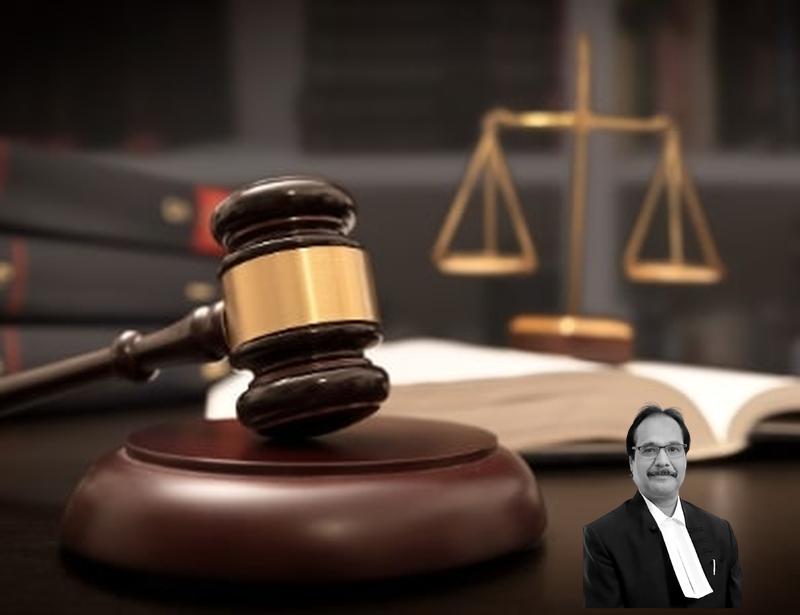Explore the intricate legal analysis conducted by the court in a recent case, focusing on the importance of compliance with certification requirements. The court’s emphasis on following rules and verifying identities highlights the significance of due diligence in legal procedures. This summary sheds light on the intricacies of legal proceedings and the duty of advocates to ensure proper compliance with established protocols.
Facts
- The applicant/first petitioner did not surrender and instead filed a Special Leave Petition (Crl.) No.7628 of 2019 to challenge the same judgment.
- The applicant denied filing the said petition when asked by his advocate.
- The advocate then investigated with the Superintendent of Jail at Etawah, who confirmed that the applicant had not filed the petition.
- A request was made to recall the order dated 15 July 2019 in the said Special Leave Petition.
- The applicant, being illiterate, used his thumb impression on legal documents.
- The Jail Superintendent’s affidavit confirmed the applicant’s custody since 04 October 2019.
- The advocate noted that the signature on the Vakalatnama in the Special Leave Petition was in Hindi.
- Supporting documents, such as the Vakalatnama and Custody Certificate, also featured the applicant’s thumb impression.
- Despite the rejection of the application for exemption from surrender on 29 April 2019, the applicant filed another Special Leave Petition (Diary No.20835 of 2020) through his current advocate.
- The Sessions Court convicted the petitioners under Section 302 r/w 149 IPC and sentenced them to rigorous imprisonment for ten years and a fine.
- The first petitioner was given two weeks to surrender, failing which the Special Leave Petition would be dismissed for non-prosecution.
- The first petitioner failed to surrender within the given time, resulting in the dismissal of the Special Leave Petition for that petitioner.
- The High Court later scaled down the offence to one under Section 304-Part-I of the IPC.
- An application for exemption from surrendering was rejected by the Chamber Judge, leading to a direction for the petitioners to be taken into custody by the Sessions Court.
- The Special Leave Petition was also dismissed for the other petitioners at different times.
- On 07 January 2022, the Chamber Judge considered the contentions raised by the applicant, Siya Ram, suggesting a possibility of recalling the order.
Also Read: Legal Interpretation of Overriding Effect in Food Safety Legislation
Analysis
- The applicant’s contention that he did not sign the Vakalatnama and affidavit in the Special Leave Petition is accepted.
- Compliance with Rule 7 of the Supreme Court Rules, 2013 is crucial.
- The Vakalatnama must be executed in the presence of the Advocate-on-Record who should certify the execution.
- An inquiry was conducted by an appointed Inquiry Officer to investigate the matter.
- The Inquiry Officer found that the Vakalatnama bore the applicant’s signature and not his thumb impression.
- Suggestions were made by the President and Vice-President of SCAORA to avoid similar controversies in the future.
- The Inquiry Officer’s report doubted the possibility of impersonation in the presence of the co-accused.
- The Inquiry Officer interacted with the office bearers of SCAORA and submitted a detailed report.
- Non-compliance with Rule 7 regarding certification on Vakalatnama was noted and directed to be investigated by the Registry.
- The Jail Superintendent’s affidavit and statement of the applicant were annexed to establish facts.
- The applicant, being illiterate, affixed his thumb impression on the statement denying filing the Special Leave Petition.
- It is emphasized that AORs must ensure due compliance with requirements and verify identities from official documents.
- Verification of identity from documents like Aadhaar or PAN card is essential if the client has not signed the Vakalatnama in person.
- The duty of AORs to verify identities and comply with certification requirements was stressed in the analysis of the judgment.
- The action of taking the applicant into custody cannot be nullified.
Also Read: Analysis of Improper Grant of Bail in the Director of Enforcement v. Bablu Sonkar Case
Decision
- The Special Leave Petition (Crl.) No.7628 of 2019 was not filed by the applicant
- The Special Leave Petition shall be treated as filed only by the second to fifth petitioners
- The application is disposed of with the above holding
- The Registry is advised to issue a Circular to the Advocates-on-Record regarding this order and the requirement of compliance with clause (b) of Rule 7 of Order IV of the Rules
- The Miscellaneous Application is disposed of in the above terms
Also Read: Withdrawal of Offending Statements in Defamation Case
Case Title: SURESH CHANDRA Vs. THE STATE OF UTTAR PRADESH (2022 INSC 571)
Case Number: MA-001242 / 2021



